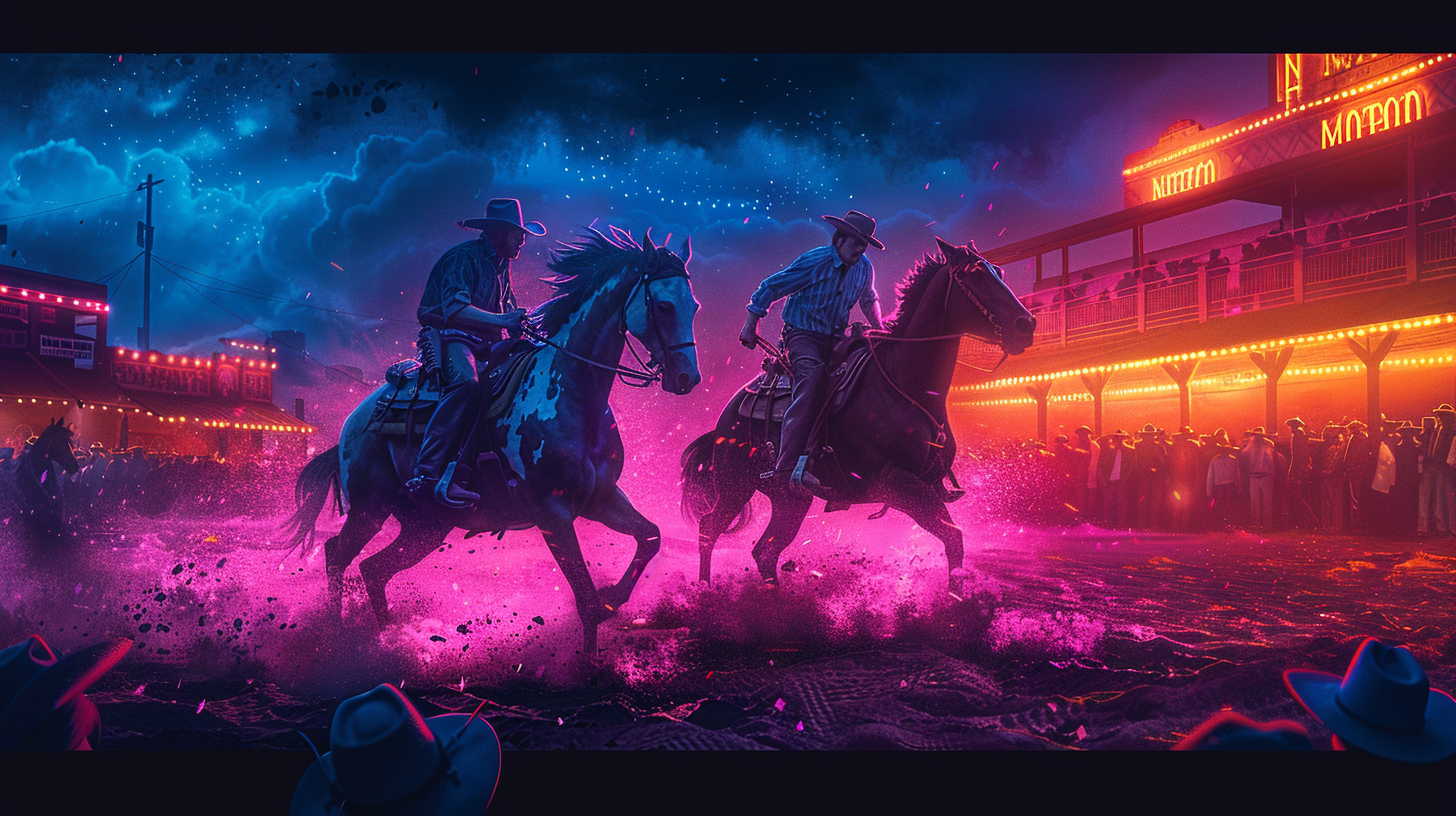The Titular AI Trademark Tango: GROQ, GROK, and the Ghost of IP Past

The AI industry is getting crowded. About a third of Y Combinator's S23 and W24 cohorts are AI-related companies, which indicates that there’s certainly no shortage of competition in the AI space. The increasing saturating across the AI space has presented a unique challenge in AI brand identity. There’s already a limited supply of words available to name companies, products and services. This scarcity applies to AI companies, who are struggling to find available words to distinguish themselves and their products/services from their competition. As a result, there's a growing trend of companies encroaching on existing brand names, especially those that are simple and easily remembered, leading to a scarcity of unique “given” names in the AI sector.
With this mass influx of new AI companies flooding the market and sniping source-identifying words left and right, it's unsurprising that even tech titan Elon Musk has already found himself in another potential legal dispute --- this time: trademark infringement. Musk's latest brainchild, an AI chatbot named GROK, caught the attention of GROQ INC. — another AI-related company holding the federal trademark registration covering "GROQ" for AI software and hardware. In response, GROQ published a public cease and desist letter alleging Elon's use of the word GROK for X/Twitter’s AI chatbot constitutes trademark infringement. As GROQ eloquently stated in their cease and desist letter, "the difference of one consonant (q, k) only matters to scrabblers and spell checkers."

We, personally, happen to be: (i) a word gamer; (ii) OCD about spelling errors; and (iii) intrigued by legal drama in general.
So let’s dive in.
Since time immemorial, humanity has emblazoned its creations with insignia - from the prehistoric Lascaux cave etchings denoting cattle lineage to the labyrinthine house marks adorning medieval European wares. The mercantile spirit that first stirred in pre-Common Era Egypt, where Pharaoh Tutankhamun’s tomb featured ancient containers marked with seals identifying the source, quality and provenance of illustrious wines, has propagated through centuries of commerce. Its inexorable current crested during the 19th century's first globalization — an influx of innovation that birthed a Munich brewery’s claim to the oldest continuously used trademark in 1383, the pioneering Assize of Bread and Ale legislation under England's Henry III decreeing baker's identifiers, and the world's inaugural temporary intellectual property protections for Vienna's 1873 World's Fair exhibitors.

It was this globalizing gale that coalesced and culminated into the 1883 Paris Convention — the foundational international trademark treaty establishing protections for domestic and international trademark owners. American jurisprudence tilted towards this rising tide, which spawned the original 1870 U.S. federal statute mandating trademark registrations followed by a landmark court decision affirming robust common law rights for trademark holders.
Into our modern era we sail the AI chatbots and language models - ELIZA, Alexa, Siri, Gemini, ChatGPT, Claude… and Elon Musk's latest disruptor christened "GROK." It's not hard to see why Elon was drawn to the name "GROK." It's a term deeply rooted in obscure science fiction lore and one that seems unlikely to be taken. Elon's a guy who likes space, tech, and things to go fast -- rockets, cyber trucks, product launches ... you name it. It's unsurprising that Elon would be fast to name X/Twitter’s AI Chatbot as well. So fast that no one ran a trademark search to see if there'd be a conflict.
The indignant Groq letter asserts their LPU silicon is the true "speed… junkie" here, racing first to secure legal imprimatur through federal registration long before Musk debuted his GROK AI chatbot.
Have questions about your specific situation?
Every intellectual property situation is unique. Chat with VenAgent to see if we can help.
Talk to VenAgentIn stark contrast to the speed of Musk (and his companies' products) and GROQ (and their AI products), there's nothing speedy about trademark infringement litigation. Trademark infringement lawsuits generally take 18-36 months to reach some kind of resolution.

So, the real question is: does Musk's use of GROK constitute trademark infringement? Trademark infringement generally occurs where a likelihood of confusion exists between two marks. Courts weigh a myriad of factors to determine whether a likelihood of confusion exists, including the similarity of the marks (sight, sound, meaning), the relatedness of the goods/services offered, the strength/fame of the senior mark, and the similarity of trade/marketing channels, among several other factors. In the case of GROQ and GROK:
- The marks are virtually identical in sight, sound, and meaning --- they differ by just one letter, sound identical, and have some science-y meaning.
- The marks are both AI-related.
- Both use the same trade and marketing channels (internet, social media, Bay Area word-of-mouth).
- GROQ may not be as well-known as GROK (which could present reverse confusion issues, where the more well-known junior user is mistaken as the source of the senior user's goods or services).
While a full likelihood of confusion analysis is beyond the scope of this commentary, including whether infringement is intentional at this juncture, given the factors enumerated above, it's not a stretch to imagine there's a likelihood that consumers could be confused between the source of GROQ's AI products and the GROK xAI chatbot. As such, holding all else constant, it seems that Musk/X's use of GROK constitutes trademark infringement.
So where does this AI path ultimately lead? Will Musk offer to acquire Groq's mark outright, that "gold brick" their counsel once nervously eyed? Or rebrand anew, perhaps to "SPOK" in deference to a life lived long and prosperous or “ROK-EM-SOK-EM” as a homage to battling AI robots? A "winner-take-all" duel of digital benchmarking appeals, letting the market decide the supreme chatbot deserving nominative spoils.

Or must this battle spill from councils to Colosseum, the disputed mark's fate sealed in a Sabbath drama of Silicon Valley scripture — a Steel Cage Match at Wrestlemania last weekend, loser retiring their mark amid jeers from the digerati, with THE ROCK as special guest referee… would have been certainly the most entertaining dispute resolution alternative — trial by cage match... juicio por la lucha libre… judicium ex machina duellum.

A crisis potentially dwarfing this GROQ/GROK imbroglio looms. For what of the human workers whose very names - Alice, Alexa, Bixby, Calia, Claude, Cortana, Ernie, Gemini, Leo, Siri, Sparrow, Xiaowei - have been subsumed by the AI assistants from Anthropic, Apple, Baidu, Brave, Google, Huawei, Microsoft, OpenAI, Samsung, Tencent, and Yandex? As these firms' language models grow potent enough to supplant human labor, can they lay claim to preventing the sale of services under those monikers by prior, current, or future bearers of the flesh?
Just as the 14th century Florentine metalsmiths sought legal protections for their personal markings, the battle over nominative rights takes an existential turn. For if Alexa, the human tutor with a huge TikTok following, finds herself undercut by Amazon's Alexa in the education marketplace, has she not the same common law claim as the medieval craftsman before the Scholar of Bologna? We’ll reconvene with further comment at a later time.
Just as the ancient ELIZA outperformed ChatGPT's forebear in one recent "Turing Test" study, this nominative clash reminds that true innovation emerges more from "mastering the intricate interplay between technological brilliance and legal foresight," to the esteemed Judge Hand's closing insight on the matter. Emulation perpetually renews, this time played by AI pioneers inheriting the mercantile legacies first etched into vessels millennia ago. Whichever mark ultimately triumphs, may it mark the birth of an immortal brand… and not merely another ghost sign adorning the AI revolution's archeological tell.

Thoughts?
DISCLAIMER: This color commentary is for entertainment and educational purposes only. The opinions are the contributors' own and nobody else’s. Nothing constitutes legal, tax, or financial advice. Neither of the authors make any guarantee or warranty of any kind whatsoever (e.g., express, implied, fitness for a particular purpose). Although the contributors put a good faith effort into thoroughly researching and analyzing the subject matter above, the contents may not be error-free, complete, or accurate. You shouldn't take any action in reliance on any of the above contents before consulting a legal, financial, or tax professional.
About the Author

Alex L. Nguyen
Founder & Principal Attorney
Before full-time law practice, Alex was a venture-backed startup entrepreneur. The founder perspective shapes how he practices law and writes about legal and business matters.
Need legal guidance for your startup?
Let's discuss how VenCounsel can help you navigate legal challenges and accelerate your growth.
Get in Touch